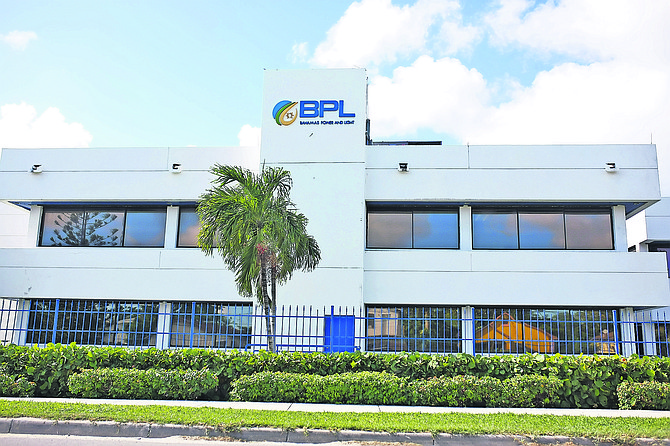By KHRISNA RUSSELL
Tribune Chief Reporter
krussell@tribunemedia.net
BAHAMAS Power and Light’s March implementation for the National Utility Investment Bond fee is “subject to change”, according to the power provider’s head of communications Quincy Parker yesterday.
BPL had planned to introduce the fee on customers’ bills next month, but several factors could impact this.
Mr Parker was asked yesterday whether the fee was still set to come on stream in March.
“We and our partners are still completing necessary work, which includes finalising marketing dates around the bond and other details,” Mr Parker said yesterday. “Our target for implementing the NUIC still remains the month of March. That date is subject to change based on market conditions and issues beyond our control.”
It is unclear when the marketing campaign will begin.
In December, BPL Chairman Donovan Moxey said the extra charge will likely be about 15 percent of consumers’ bills.
He clarified that the rate reduction bond fee, which will service BPL’s new $650m debt, will be calculated as a percentage of every business and household’s energy consumption.
At the time he told Tribune Business: “We’re still in the midst of the bond, so I can’t say much beyond what we posted out there. What we have posted out there was the rate for the average consumer. That rate itself is based on a calculated, or estimated, price per kilowatt hour (KWh).
“Just look at it this way. If you look at how that is calculated, the average Bahamian pays $180 per month, so that rate is a percentage of that $180 per month. So you can extrapolate that through to see what everybody else may pay given that estimated total.”
The $27 figure quoted in a previous BPL’s advertisement therefore represents 15 percent of the $180 “average bill” referred to by Dr Moxey. “Everybody is going to pay the rate reduction bond rate,” the BPL chairman asserted.
“The calculation you saw was a percentage based on the average bill that Bahamian households pay. The average bill is $180 a month. So, just based on what I just told you, you can extrapolate some calculations there.
“Everybody is paying the same percentage on their bill, and that percentage that we gave you is an estimate because I can’t come out and tell you what it’s going to be because we’re still going through the rating agency process. That percentage will apply across the board to everybody’s bill.”
Many observers are likely to view BPL and the government as having been less than forthcoming on how much extra the private sector, especially, and many residential consumers will now have to pay to bail-out the state-owned utility monopoly from years of mismanagement, waste, inefficiency and corruption that brought it to near-collapse.





Comments
ohdrap4 5 years, 11 months ago
Let me guess:
It will be introduced right after the earliest of:
Next election
Or
Whe the unemployment rate is 6%.
Sign in to comment
OpenID